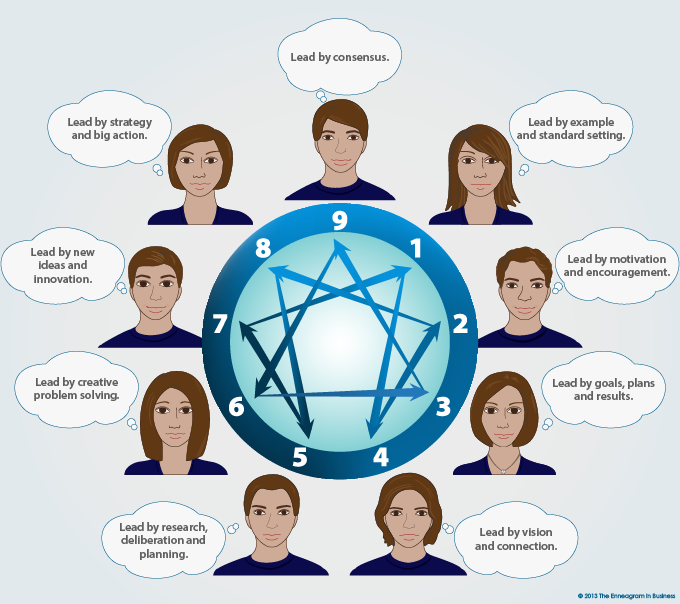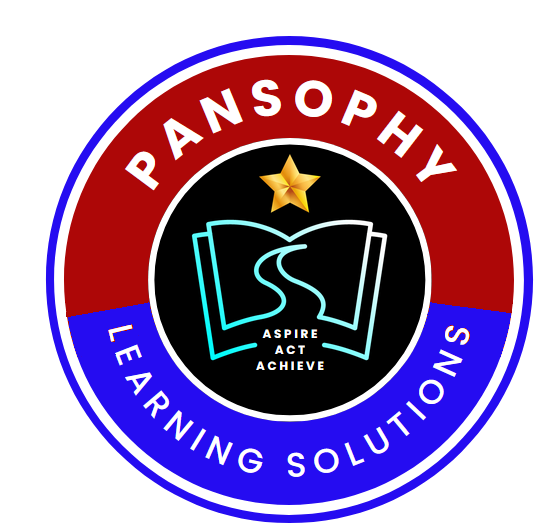This article delves into the strengths, potential hurdles, growth opportunities, and the influence of Enneagram Type 5 leaders on team members who may have different personality types. By comprehending the dynamics of the Type 5 leadership style, you can cultivate a well-rounded and inclusive work environment that encourages collaboration and individual development.
The Enneagram Type 5 leadership style brings an important blend of self-sufficiency, expertise, and thoughtful analysis.

Strengths of Type 5 Leaders:
- Depth of Knowledge/Proficiency and Expertise: Type 5 leaders excel in acquiring knowledge and becoming subject matter experts in their respective fields. Their thorough understanding enables them to offer valuable insights and guidance to their team members.
- Autonomy and Self-Reliance: These leaders value independence and self-sufficiency, which enables them to work effectively on solo projects and contribute unique perspectives to team discussions.
- Analytical and Strategic Thinking: Type 5 leaders exhibit a natural inclination for critical thinking and analyzing complex problems. They approach decision-making with a strategic perspective, carefully considering options before taking action.
Blind Spots and Potential Hurdles:
- Possible Overemphasis on Analysis: The analytical nature of type 5 leaders may at times result in overthinking and analysis paralysis. It is essential for them to be mindful of striking a balance between analysis and taking action to prevent unnecessary delays.
- Inclination for Solitude: This leader tends to withdraw and may prefer working independently. It is important for them to be mindful of finding a balance between their preference for solitary work and actively engaging and collaborating with their team.
- Challenges in Delegating: Type 5 leaders may find it challenging to delegate tasks and share responsibilities. They place high value on their expertise and may be reluctant to trust others with certain aspects of a project.
Growth Opportunities for Type 5 Leaders
To continue to enhance their leadership effectiveness, Type 5 leaders can focus on the following growth areas:
- Acquiring Delegation Skills and Building Trust: Leaders of this type may benefit from practicing the delegation of tasks and placing trust in their team members’ capabilities. This empowers the team, promotes their development, and enables the leader to concentrate on strategic initiatives.
- Nurturing Collaboration and Communication Skills: Type 5 leaders may find it beneficial to proactively develop collaboration and communication skills. Participating in team discussions, sharing insights, and seeking input from others can foster a culture of teamwork and mutual learning.
- Developing Emotional Intelligence: Type 5 leaders can focus on enhancing their emotional intelligence to gain a better understanding and empathy for the emotions of their team members. This improvement contributes to their capability to foster a supportive work environment.
For additional development opportunities, study Type 5s resource points (arrows in the enneagram symbol), Type 7 and Type 8, to see what behaviors and qualities they can pull in to improve their approach to leadership. Also, please refer to the leadership strengths of Type 7 and 8.
How the 9 Enneagram types perceive leadership?
Source: theenneagraminbusiness.com/

Potential impact on their team:
Positive impacts/ Favorable effects or benefits
- Autonomy and self-reliance: Type 5 leaders exhibit a natural inclination towards independence and self-sufficiency. They are at ease working autonomously, fostering an environment where team members feel empowered to take ownership of their work, cultivating a sense of responsibility and self-sufficiency.
- Strategic thinking and planning prowess: These leaders are often skilled at analyzing information, thinking critically, and developing strategic plans. Leaders of this type are adept at analyzing information, engaging in critical thinking, and formulating strategic plans. They excel in recognizing patterns, foreseeing challenges, and offering well-considered solutions for the team.
- In-depth knowledge and Specialized Expertise: Type 5 leaders typically possess a wealth of knowledge in their field of expertise. Their elevated expertise serves as a valuable asset for the team, providing substantial support for problem-solving and decision-making.
- Eagerness to continuous learning: Leaders of this type typically possess a natural curiosity and a strong desire for knowledge. They promote a culture of ongoing learning, offering opportunities for professional growth and development within the team.
Negative impacts/ Adverse effects or drawbacks
- Excessive Focus on Knowledge Accumulation: Type 5 leaders, in their pursuit of knowledge and expertise, might occasionally place an overemphasis on accumulating information. This intense focus on knowledge acquisition may restrict their capacity to delegate tasks effectively or empower team members.
- Withdrawn or detached demeanour: Type 5 leaders may lean towards introversion and a preference for solitude. This inclination can occasionally manifest in withdrawn or detached behavior, posing a potential obstacle to effective communication and collaboration with team members.
- Challenges in Delegating: Owing to their inclination towards self-sufficiency, Type 5 leaders may find it challenging to delegate tasks or responsibilities. This reluctance to delegate can result in an uneven distribution of workload and impede the development of team members’ skills and capabilities.
- Hesitancy in Sharing Information: These leaders may be hesitant to share their knowledge or insights freely. Their inclination to guard information can create barriers and limit the flow of information and ideas within the team.
Conclusion
It is crucial to acknowledge that the influence of a leadership style is contingent on the particular context, team composition, and the project at hand. Striking a balanced approach that combines the natural strengths of the Type 5 leadership style while being mindful of potential challenges and blind spots can optimize its positive impact and mitigate or lessen any negative effects.
Every individual is distinct, shaped by a myriad of factors such as childhood experiences, race, culture, birth order, socioeconomic status, education level, religion/spirituality, family dynamics, and more. These elements collectively influence a person’s personality and the strategies they employ to navigate life. Utilizing the Enneagram as a framework provides a starting point for gaining a deeper understanding of oneself or others. It serves as a valuable tool to comprehend and support individuals, fostering personal and interpersonal growth.
Which leadership styles do you incorporate? Leadership is a fluid/dynamic endeavour, allowing for the adoption of various styles. Your approach evolves as you consistently aim to improve your support for both your team and the overall development of the company.
As the Chinese proverb conveys, wisdom lies in adapting to circumstances, akin to water moulding itself to suit its container. To enhance our leadership capabilities in the future, it is vital to comprehend the suitable leadership styles for diverse situations and take into account the motivational factors of those we lead.
Engaging in a leadership workshop that employs the Enneagram profiling system can aid in developing an agile/adaptable leadership style, a quality increasingly acknowledged as crucial for effectively guiding today’s workforce.
Utilizing the Enneagram in leadership enables participants to grasp the nine unique leadership paradigms, encompassing their inherent strengths and potential challenges. This approach delves into the expected behaviours demonstrated by leaders of each Enneagram type and proposes customized development activities to augment leadership capabilities according to individual Enneagram types.
Moreover, the Enneagram proves valuable in refining specific leadership competencies, including the ability to drive results, strategic planning, leading high-performing teams, and more.
